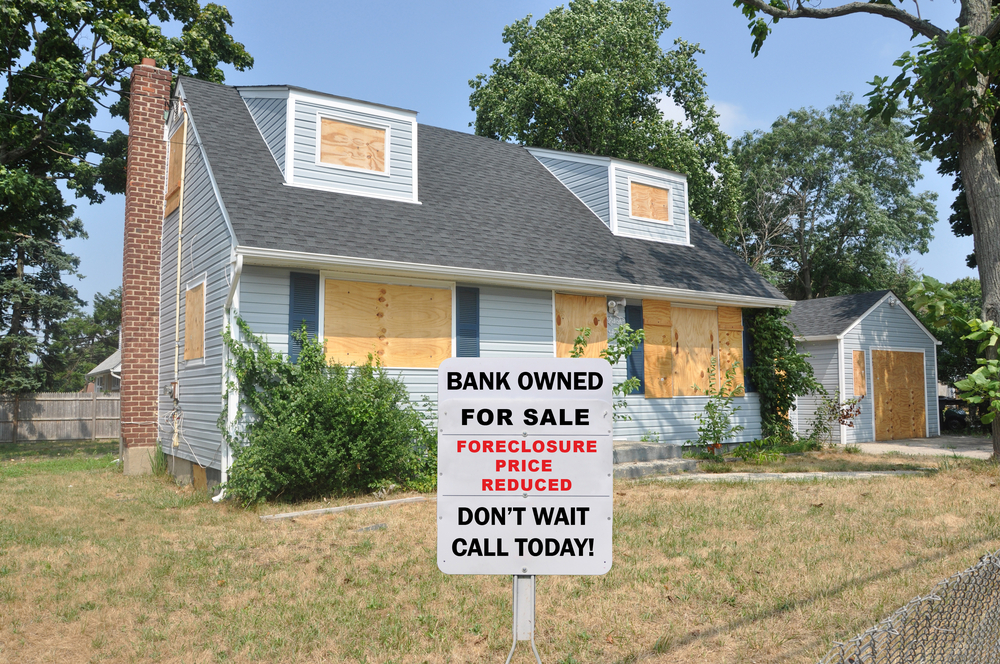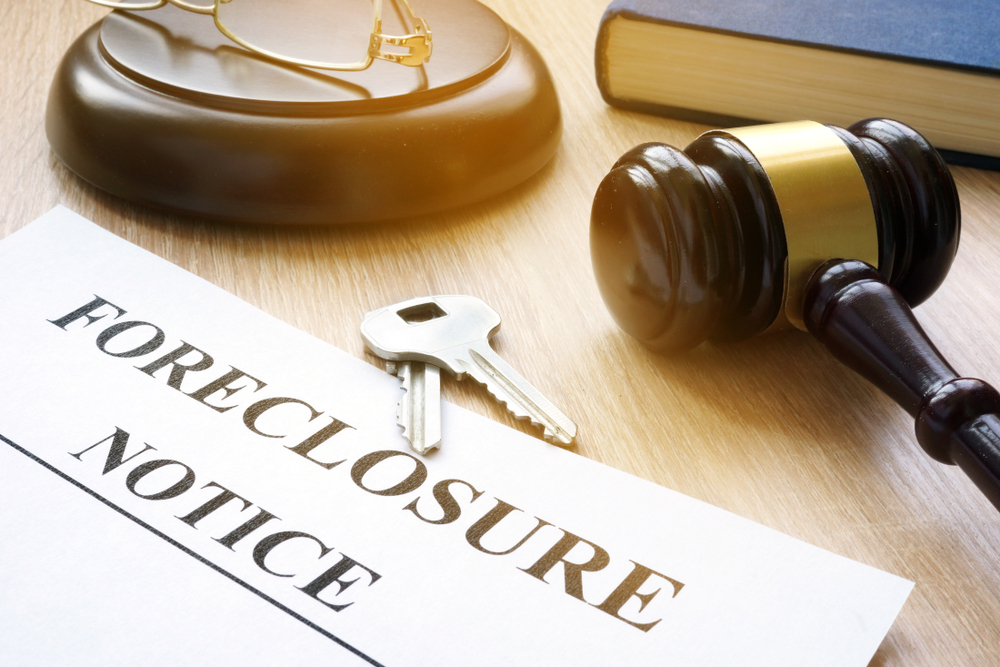Pre-foreclosures, foreclosures, and REO properties are marks of a distressed or unfortunate situation. Many homebuyers will stay clear of these terms during their house hunt. But the right first-time homebuyer or real estate investor can gain the upper hand and negotiate a great deal once they understand the nuances of these terms.
Pre-Foreclosure: The first step in the foreclosure process
When a homeowner misses their mortgage payments for 90 days, they will receive a legal notice from their lender informing them that their property is in pre-foreclosure.
What does this mean in layman’s terms?
In brief, the homeowner still owns their home, but they violated their contract with the lender. Therefore, if the homeowner doesn’t come up with a solution for paying off the mortgage debt, the bank can evict them and seize their home. This is a critical period when the homeowner still has time to negotiate their situation and save their house.
The lender will give the homeowner up to 90 days to either apply for a new loan or borrow money in order to stop the foreclosure process. Alternatively, they can sell the property and pay back the lender with the proceeds.
Short sales are sometimes called pre-foreclosures because they indicate that the homeowner may be financially distressed. Homeowners who are “underwater” on their mortgage (meaning they owe more than the house is worth) and struggling to pay their mortgage often request to sell their home as a short sale in order to avoid foreclosure.
Foreclosure: The bank repossesses the property

When a homeowner cannot pay their mortgage, the bank will be legally allowed to evict them and take the property back in a process known as foreclosure. However, the bank doesn’t want to own or take care of the house – they just want their money back.
The bank will usually hire a real estate agent to list the property for sale and market it to attract real estate investors. If the house is distressed in any way, they may post the property in a public auction at a reduced price in order to get a quick sale.
Foreclosure is a worst-case scenario for a homeowner. They lose their home, their credit score suffers, and they aren’t able to buy another home for at least 7 years. Even after 7 years, foreclosures are virtually inescapable as the homeowner has to explain what happened on every financial application that they fill out for the rest of their lives.
REO Properties: Opportunities for the right buyer
Any property that is owned by a bank or lending institution is considered a real estate owned or REO property.
If a bank can’t unload one of their foreclosed properties via auction or traditional sale, they may try a few different methods to recoup their funds.
For instance, if the home is in need of repair but in a desirable location, they may front the funds to restore part of the house so they can attract the right buyer and close the gap on their losses.
The bank may also hold onto the property and maintain it at a bare-minimum until the local market improves. If selling isn’t possible, they may also work with a local property management agency to rent out the home.
Remember, lenders don’t want to own properties. They want to lend money to people so they can own properties. This is why you’ll often see REO properties listed at a reduced price. Lenders want to get them off their books quickly and move on with their primary mission.

So, is an REO property a good investment?
They certainly can be, for the right buyer. Real estate investors often look for REO properties because they know they can get a good deal from them. Plus, they’re not afraid of the amount of work needed to flip the home back to a sellable or rentable condition.
For the experienced real estate investor or DIY-homeowner who’s willing to put in some sweat equity, REO properties can be a great investment.
Conclusion
Once you understand that these terms are just different steps of the foreclosure process, you’ll be able to navigate real estate opportunities with a new perspective.
Pre-foreclosures indicate that a foreclosure may be imminent. The homeowner still has a chance to avoid foreclosure by selling or short-selling the property quickly. They’re looking for a quick and easy sale with few terms.
Foreclosure listings may indicate a lengthier close. There may be tenants present, legal issues, unpaid taxes or other liens on the property. The right buyer will have the funds and legal counsel on hand to weather a long closing process.
REO properties can be listed for a good price, but remember that the lender still wants to recoup their losses. There may not be much room for negotiation.
The right real estate team can help you find the best deals, whether on or off the market, and help you navigate the complexities of lender negotiations.
Each of these property types could be an opportunity for the right buyer, or a disaster for the wrong one. It’s important to hire a real estate agent with experience handling pre-foreclosures and foreclosed properties.
____________________
If you’re a homebuyer or real estate investor in Washington DC, Maryland or Virginia, call Marc Dosik and the Fed City Team to help you find real estate deals. Marc and his team have handled dozens of pre-foreclosure and foreclosure listings and are experienced 1031 exchange specialists. Marc and his team are also experienced short sale specialists, managing over 100 successful short sales for distressed homeowners over the past 20+ years. Before you buy your next investment property, call the Fed City Team today and learn how we can help you scout the best deals and save thousands of dollars.
Want to learn more about the short sale process?
Download our FREE ebook: How to Sell Your House in a Short Sale. Get your copy today!
_____________________________
Disclaimer: Every homeowner’s situation is unique, and local, state and federal laws change regularly. As such, this information should not be considered as legal, tax, financial or investment advice. Consult a qualified professional before making any financial decisions.



